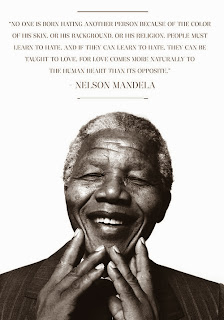A little over a year ago I decided to
get a tattoo. The tree I now have inked on my right hip serves as a reminder of
possibly my best and worst personality trait: my desire to fix things. For me,
the tree shows the delicate balance and dichotomy of meaning to do good (living
branches stretching upwards) versus the surprisingly destructive effects of
wanting to fix things like character tendencies or feelings (dead lower limbs).
But I continually question where this attitude comes from, particularly in the
last few weeks when so many of my conversations seemed to flirt around this
idea of quantifiable resolutions and fixes.
I was perusing through some of my
favorite online fitness magazines this morning when it smacked me in the face.
As an avid gym junkie, woman, and American, I have been slammed with media and cultural
ideals telling me that there are ten ways to a perfect spring break body and
five easy steps to get toned fast. Media representation will surely be a future
topic, but I’m more concerned with our fixing culture, and how we think we can
achieve some semblance of perfection through lists with some desired end goal.
During a Prindle reading group last
week for Ken Bain’s, What the Best College Students Do, a professor made (what
was for me) a revolutionary statement. She said that we need to stop making
lists where you can check things off. Instead of being goal-oriented, she
suggested being value-oriented. What is the value of a value-oriented list?
Setting end goals like losing five
pounds, or getting all A’s is like a horse running with blinders: you see a
destination and only the one path to get there. What do we accomplish for
ourselves by checking off this list?
I propose instead, that we should set
immeasurable goals. Ambitions that can always be worked towards and involve
creativity and a network of paths towards a feeling of success. A list like: be
more involved in the community, make decisions that make me feel healthy, and
give more compliments. Easier said than done, but that’s the challenge, and I
believe that a list like this will create habitual change instead of a one-stop
fad diet.
What is the intrigue of a checklist? Are
there benefits to having lists with end goals? How can they be harmful? I’m fascinated
by this obsession of fixing things and making lists for ourselves, and I always
hope that I can turn my attention towards the process and values learned when
trying to achieve something, rather than an end goal.
















